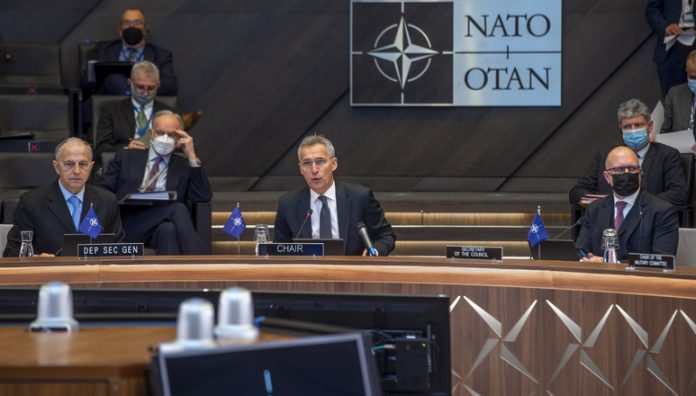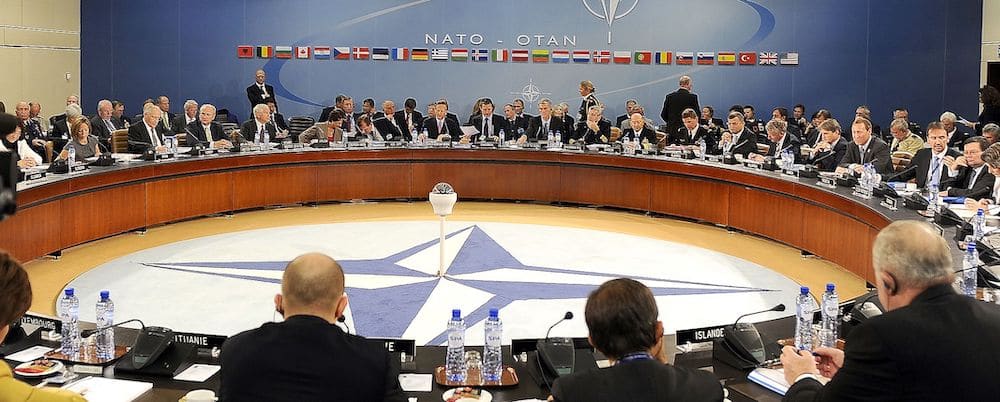NATO developing political, practical partnerships to strengthen Ukraine’s institutions and help transition from Soviet standards, says Stoltenberg
In order for the embattled nation of Ukraine to one day join the ranks of NATO, the country needs to remain sovereign and independent, said the alliance’s chief on Wednesday.
Asked at the end of a NATO foreign ministers meeting in Romania’s capital Bucharest if Ukraine deserves to join the alliance, Secretary General Jens Stoltenberg said: ”If Ukraine cannot continue as a sovereign and independent country, then, of course, membership – the issue cannot be on the table.”
Speaking at a press conference, Stoltenberg added that NATO allies are ready to supply Ukraine with advanced military materials, ammunition, fuel, and what it needs as it continues to fight off Russia forces.
“We are developing both political and practical partnerships with Ukraine. This will strengthen Ukraine’s institutions, and help transition from Soviet-era equipment standards to modern NATO standards doctrine. This is for Ukraine and for us,” said Stoltenberg.
Fight against terrorism will continue
During the two-day NATO meeting, Stoltenberg said, the NATO foreign ministers “also discussed terrorism, the most direct asymmetric threat to our security. We saw that most recently with the horrific attack in Istanbul. Ministers agreed that we must continue our efforts to counter this threat.”
REad ALSO: US: Blinken says Nato concerned about China’s ‘opaque’ military build-up
The Nov. 13 terrorist bomb attack on a crowded Istanbul street killed six people and injured 81. Turkish police quickly apprehended the confessed bomber and numerous suspected co-conspirators.
Russian influence in Bosnia
Asked about Russian influence in Bosnia and Herzegovina, Stoltenberg said that completing the formation of the government after the country’s latest general elections on Oct. 2 is one of the most important factors.
”Bosnia and Herzegovina is important for stability in the Western Balkans and also important for NATO … We discussed our common security concerns and ways to strengthen cooperation. The (NATO) allies agreed to increase our tailored support, including capacity building, reforms, and training to improve security and defense institutions,” said Stoltenberg.
Russia is on record as opposing Bosnia and Herzegovina joining the NATO alliance.
Turkish Foreign Minister Mevlut Cavusoglu also attended the two-day meeting.
Original Post














